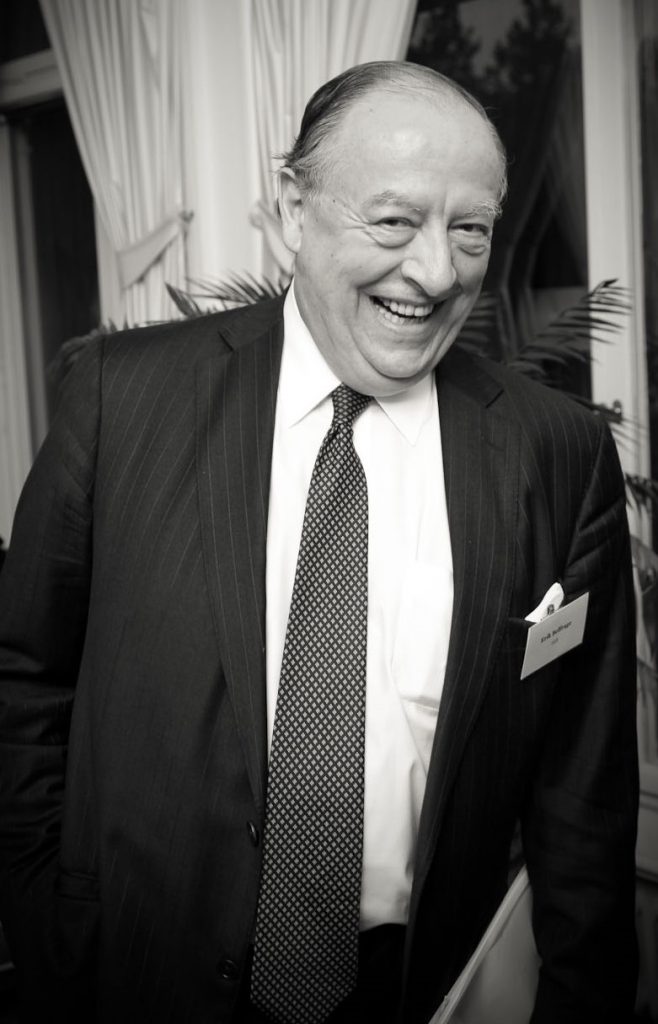In remembrance
The International Council of Swedish Industry (NIR) mourns Mr. Erik Belfrage, Chairman of the Board (2005-2020), Board Member (1997-2020) and Dear Friend.
NIR Chairman Erik Belfrage
Mr. Erik Belfrage lost his life to covid-19 on 18 April, 2020. Any attempt to capture Erik’s life in words seems futile, for there would certainly be as many words as the number of people he met during his life. A myriad of meetings with people on all continents. The International Council of Swedish Industry all too soon lost its highly esteemed Chairman of the Board and Sweden lost a tireless advocate for internationalism, free trade and the value of knowledge and dialogue. Erik did not tire. Always equally curious, open, tolerant, positive and energetic. He was alive. As sharp as able and was fully engaged in chartering the way forward into the next decade. In August, Erik would hand over to his successor as Chairman of the Board in conjunction with the festivities of the 60th anniversary of the International Council of Swedish Industry, gathering members, partners and friends.
Erik had a formidable ability to meet people, he saw people and he was a good listener. Thus, he meant a lot to many. As man and as mentor. To us at NIR, and in many other contexts. In Sweden and abroad, a true citizen of the world. We will miss our long-standing Chairman for a long time to come, but we will take his legacy of economic diplomacy into the future, as well as his calling to act as a bridgehead between private and public sector, between north and south, east and west, sometimes beyond conventions .
Erik Belfrage was a globetrotter, a diplomat, a nestor within the Swedish business community, Swedish and French at heart, and if one dared to choose two words to honor Erik they would be in French: esprit (spirituality, wit, resourcefulness) and savoir-vivre (living knowledge, world experience).
“I learned that every mortal will taste death. But only some will taste life.”
Jalāl ad-Dīn Muhammad Rūmī, 13th-century Persian poet
A life well lived. We will always remember you, Erik Belfrage
On behalf of NIR, Christine Bäckström, CEO

Within the private sector, we have always been able to build on the fact that we all speak the same language. We have the same desire to develop our enterprises. The private sector has an ability to spearhead dialogue and build relations across borders, and to find practical solutions. Business needs stability to flourish. More than stability – it needs equality. Free trade should be based on equal opportunities and free choices of who you want to trade with. Free movement of people, goods and financial transactions.
Erik Belfrage

